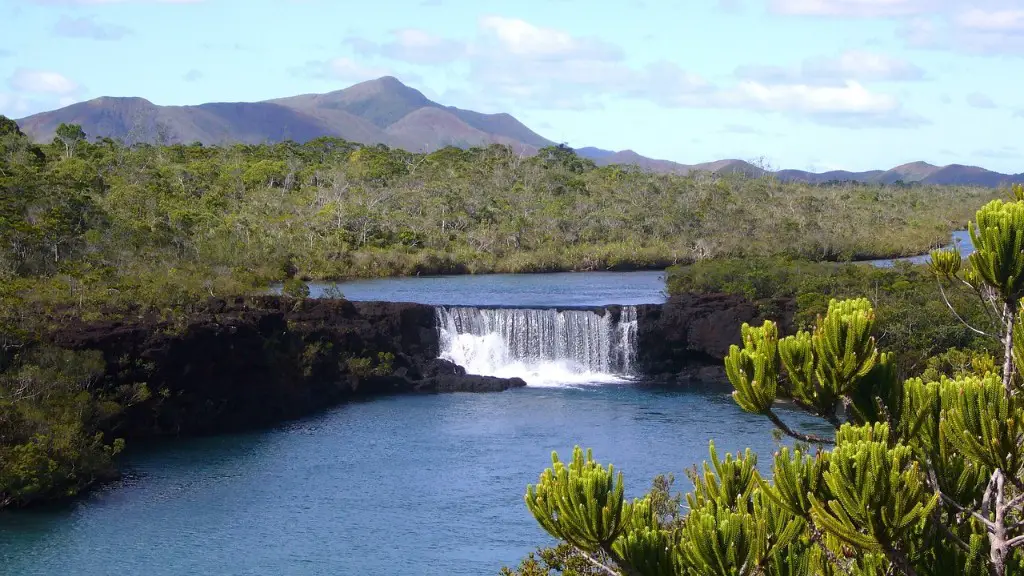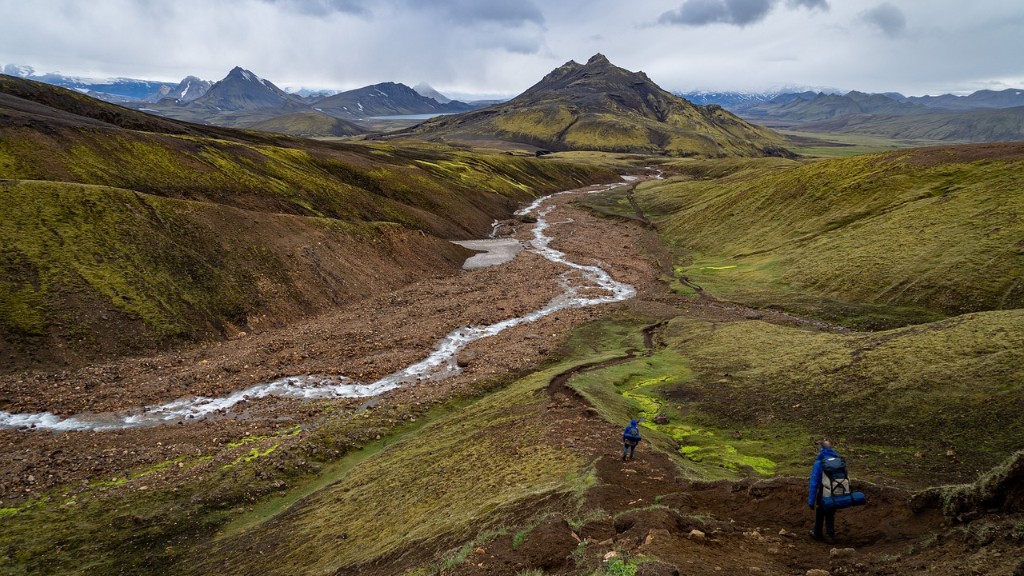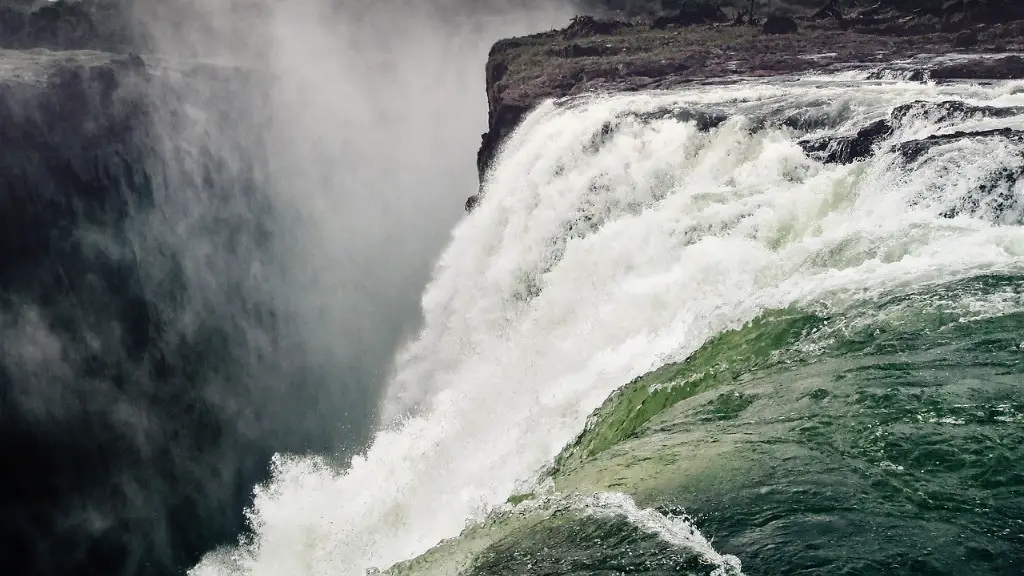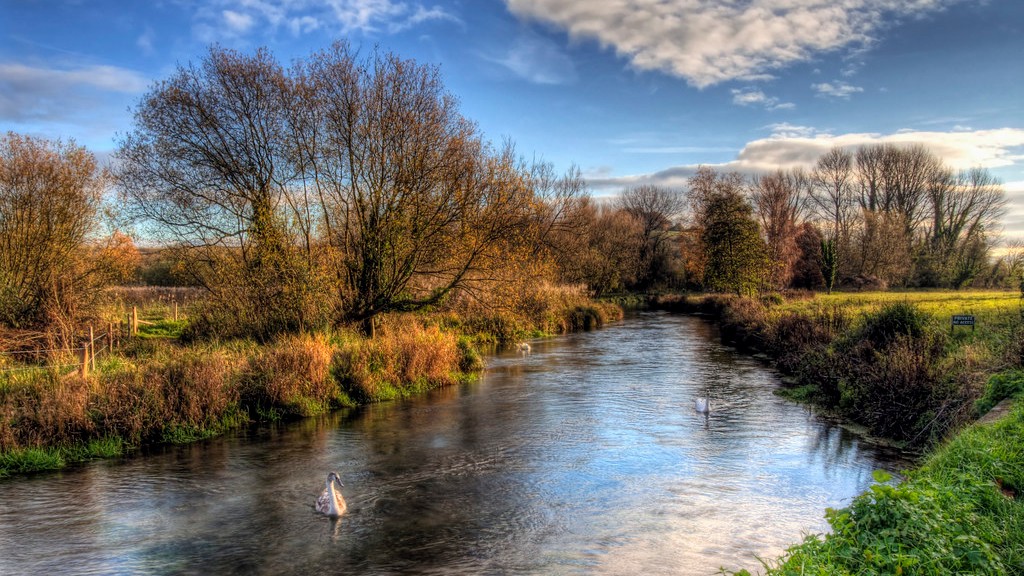The Mississippi River, located in the United States, is one of the most renowned rivers in the world. Its reputation is further reinforced and magnified by the stories that are told about it, such as the notorious Mark Twain tales, and the river’s own storied past as an important source of livelihood for many generations. From its historical and cultural significance, to its current reputation as a tourist hotspot, the Mississippi River has been a major influence in the world for centuries.
The Mississippi boasts one of the longest river systems in the world, beginning from Minnesota and snaking its way south down the nation’s “heartland” to the gulf of Mexico. Covering an impressive distance of 2,340 miles, it is the second longest river in North America. The exact origin of the name “Mississippi” remains unknown, but some sources suggest it may be derived from the Algonquin language and mean “great river.”
It is said that this river is historically, politically and economically important to the United States and its citizens. The presence of fertile soil on land bordering it provided fertile grazing lands, while the fast-flowing waterway facilitated transportation, trade, and industry. This resource has been a crucial factor in the development of agricultural societies and the prosperity of the nation’s people.
It is also home to hundreds of unique species of wildlife and plants, which earned it a slot in the National Park System. The Mississippi and its tributaries are home to more than 200 species of fish, over 100 species of mammals, and 300 species of birds. It even serves as a refuge to some of the most endangered species of wildlife living in the United States.
Furthermore, the Mississippi has had abiding influence on artistic and literary expression, music, folklore, and theater. Countless books and plays have been written on the banks of the River and about its people, culture, and history. Musicians, actors, and authors around the world have drawn their creative inspiration from the Mississippi River. For example, Mark Twain immortalized the Mississippi River in his novel Adventures of Huckleberry Finn.
Recent years have seen a resurgence of interest in the Mississippi River and today, it is one of the most visited sites in the country. Tourists come to observe its majestic scenery, witness its incredible wildlife, take part in recreational activities such as fishing, boating, and rafting, and explore its many cultural offerings.
In a nutshell, the Mississippi River is renowned for its considerable contribution to the wealth and development of the United States and its broad impact on the country’s cultural landscape.
Impacts of the Mississippi River
The impacts of the Mississippi River on the growth and development of the United States are both historic and far-reaching. Aside from its importance for water transportation, the river has played a significant role in various aspects of the US economy, forming the backbone for numerous agricultural, industrial and trade activities. Over many decades, dams have been constructed along the valley of the Mississippi River to provide power, thus contributing to energy production in the region. The area has become a heavily populated and industrialized area, with thousands of miles of industrial freight transport through its waters.
The fertility of the lands around the river, referred to as the Mississippi Delta, has yielded excellent results across a wide range of agricultural production, including soybeans, corn and cotton. The Delta area also has a vibrant and lucrative tourism industry. The thousands of miles of riverfront property makes for excellent recreation, fishing and leisure activities. Through these activities, the river is able to generate revenue for the local economies.
Furthermore, the majestic beauty of the Mississippi River has made it a beloved spot of both American and international visitors. The river creates a stunning landscape of bluffs, valleys and forests adding to the character of the region. The variety of plant and animal life, along with the numerous parks and trails scattered throughout the region, adds to its popularity and desirability as a tourist destination.
All in all, it’s easy to see why the Mississippi River is one of the most renowned rivers in the world: it plays a vital role in the lives of hundreds of millions of people, influencing the environment, history, economy and culture of the United States.
Environmental Impact of the Mississippi
The environmental impact of the Mississippi has been under scrutiny for several decades due to its significant role in polluting the river. Many of the pollutants come from agricultural runoff, urban areas, and the expansive network of river-based industry located throughout the Mississippi Valley. These pollutants take the form of chemical waste, pesticides, fertilizers, and other industrial chemicals which have had a major impact on the wildlife, surrounding ecosystems and river quality.
Fortunately, significant strides have been taken to reduce the pollution of the river and its tributaries. Stricter industrial regulations, more stringent standards for land use, and more efficient waste management practices have all been implemented in recent years. In addition, farmer’s have begun implementing “kitchen curtains” or vegetable barrier buffers along the riverbanks, which helps keep pollutants out of Mississippi waters.
The Mississippi River is also an important source of drinking water for over 20 million people, which has made it vital to keep the river as clean as possible. There have been a number of campaigns in recent years to raise awareness and to encourage people to take part in local clean-up efforts in order to keep the Mississippi running clean and clear.
As can be seen, much has been done to address the environmental issues posed by the Mississippi. While there is still more to be done, the collective efforts have certainly made a positive impact in protecting the river and its surrounding ecosystems.
In order to ensure the safe and efficient navigation of the Mississippi, a complex network of infrastructure has been developed. This infrastructure includes locks, dams, navigation systems, channels, and other structures designed to ensure that navigation operations are conducted safely and efficiently. This infrastructure also serves as an important ecotourism asset, acting as a crucial link between the local communities along its route.
The Army Corps of Engineers, the Mississippi River Commission, and the Mississippi Valley Division are tasked with maintaining the infrastructure and managaing the navigation operations along the Mississippi. This includes removing obstacles, keeping channels dredged, and repairing and replacing certain structures that provide vital functions for the river.
Together with state and local governments, these organizations collaborate to maintain and provide navigational assistance, manage hydrologic information, coordinate water resource programs, regulate water levels and flows, and provide other services that are essential for the safe, efficient, and successful operation of the Mississippi River.
Cultural Significance
The Mississippi River does more than just provide an economic and environmental contribution to the US–it is also an important source of cultural and spiritual nourishment for many. Many of the communities living alongside the river have developed distinct cultural identities that have resulted from the myriad of stories and folklores woven into the culture of the Mississippi.
People from all across the country have gathered along the river to share stories, play music, and celebrate the cultural richness of the river. It is also a place of solace and personal reflection for many people, who use it as a place to contemplate, relax and reconnect with nature.
In recent decades, the rich cultural legacy of the Mississippi River has inspired a new generation to appreciate it. Every summer, the Mississippi Delta is filled with music festivals, writers’ residencies, and other artistic and educational events which aim to celebrate and preserve the heritage of the river.
The Mississippi River is clearly a source of national pride, a frequent muse for writers and artists, and a major source of livelihood for many of the thousands of people who live alongside the river.
Conclusion
The Mississippi River has stood through the ages as a natural resource that has provided many physical and emotional benefits to the people of the United States. Its length is a testament to its timelessness and its importance, while its ecological, economic, cultural and navigational role are part of its unrivalled legacy. The river is a cultural touchstone and its unique story is an enduring part of the United states’ past and identity.





